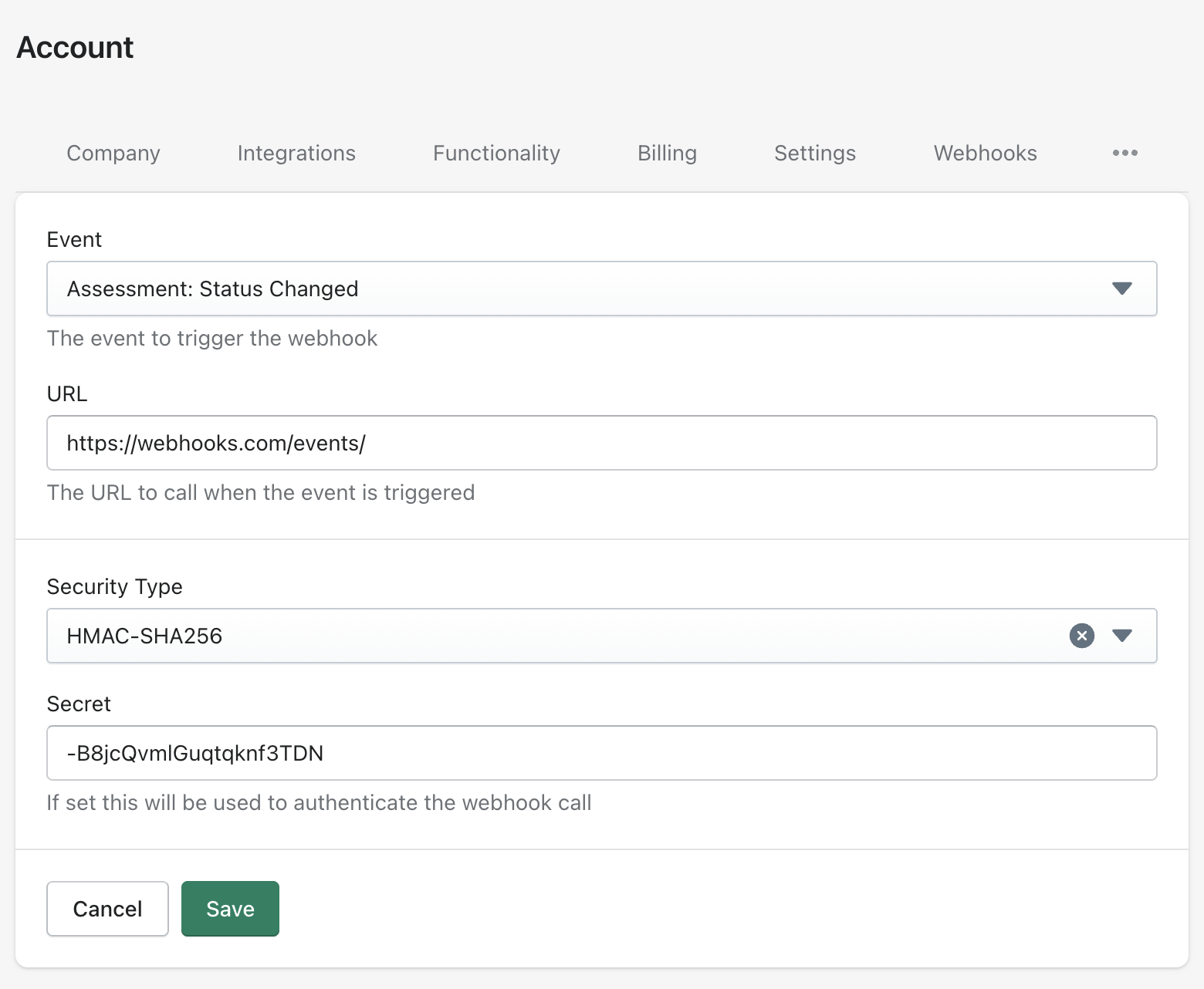Appearance
Webhooks
Setting up webhooks allows Madronus to notify an external service that an event has occured.
Note: we do not send the full data of assessments etc along with webhooks. If you need to get data from objects please use the identifiers in the webhook payload, along with our APIs.
Setup
As an admin you can access webhook setup by going to Account / Webhooks.
Options
Setting up a webhook is as simple as choosing an event, and providing a URL.
 alt text
alt text
Event: Choose the even that will run this webhook. Some events will run at the same time, for example
assessment_updatedandassessment_status_changed.URL: The full URL to call the webhook. Currently all calls are done using
POST.Security Type: Choose what kind of authentication / signature you want to use.
- None: None ...
- Plain Text: Sets the header
AuthorizationtoBearer <SECRET> - HMAC-SHA1: Sets the header
X-Webhook-Signaturetosha1=<SIGNATURE> - HMAC-SHA256: Sets the header
X-Webhook-Signaturetosha256=<SIGNATURE>
Secret: If security is set this is the secret that is used.
Security Signatures
Signatures are generated using the content of the body, along with the secret you supply.
Headers
Headers will be sent along with the webhook. All calls will contain the following headers:
Content-Type: application/json: Content type.User-Agent: Madronus-Webhook/1.0: User agent being used for our webhooks.X-Webhook-ID': ozqtz_qi_STH2TsjshU6o: ID of the webhook configuration.X-Delivery-ID': POq8gCpnSqHN9sl2upL5q: ID of the specific webhook run.X-Event-Type': assessment_status_changed: The event type. Is duplicated in the body.X-Timestamp': 1755648812981: The time the event occured. Milliseconds since the epoch.
Depending on the security chosen:
Authorization: Bearer MY_SECRET: If using plain textX-Webhook-Signature: sha1=0b39f8440500ed6321...: If using SHA-1X-Webhook-Signature: sha256=b45a31f1ffd31c1b...: If using SHA-256
Body
The body is the main payload of the webhook. It will always be a JSON string with an event and data property. The data property will depend on the event type.
Example
json
{
"event": "assessment_scheduled",
"data": {
"assessmentId": 9692,
"jobDateTime": "2025-08-11 23:00:00",
"jobDateTimeTimeZone": "America/Los_Angeles",
"jobTypeId": 84
}
}Events
List of Webhook Events
Response to webhooks
Webhook endpoints must respond with a 2xx HTTP code ie 200 OK. If not it is treated as a failed call.
Retries
Webhooks will retry up to 3 times (for a total of 4 calls) before failing. Retries use exponential delay from 15 seconds ie 15s, 30s then 60s.